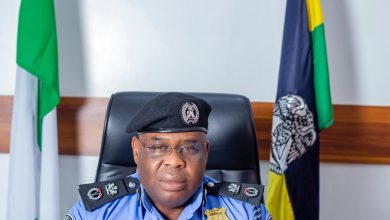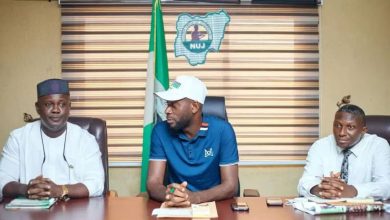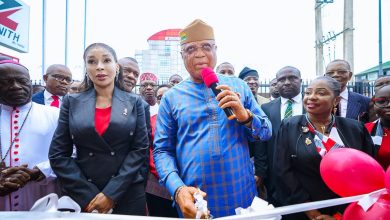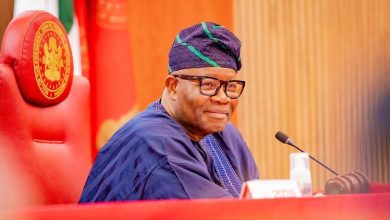Niger Delta Cause: Now That Pa Edwin Clark Is Gone!
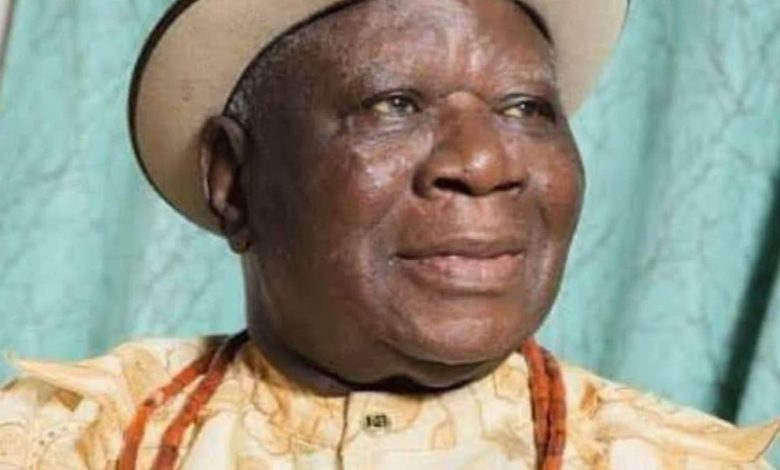
“To die completely, a person must not only forget but be forgotten, and he who is not forgotten is not dead” – Samuel Butler
It carries a weight of history to know that Pa Edwin Clark was already a father, leader, pillar, stakeholder and a regional and national figure by the time Nigeria gained Independence in 1960.
He was approximately 33 years old then. Only very few living Nigerians would share this special mention. The late paterfamilias saw when Nigeria was born. He was in the labour room as a gynaecologist with the safest hands. He cuddled her on the cradle. He weaned and watched her grow. He was among those upon whose youthful shoulders young Nigeria rested and looked up to for the journey into history.
And the filial attachment lasted just two and half years short of a century. What a union! Infant and aspiring Nigeria held Pa Clark by the hand as she waddled through the most critical stages of transition – colonial, independence, military, civil war and uninterrupted democracy.
By a cursory assessment, by the unction of age, I noticed that no Nigerian president, past or serving, can boast of having known Nigeria more and better than Pa Clark. It was why each time he spoke on any matter, local or national, nobody had reason to question or doubt him unless they knew and heard more from the horse’s mouth. When you talk of a legend, patriot, paterfamilias, he was one in all ramifications. A living ancestor!
Related: Celebrating An Ebullient Legend
No wonder comets were seen the day he died, and there was a rainbow across the Nigerian skyline on the day of his burial. The famous English playwright and poet, William Shakespeare, tells us that “When beggars die, there are no comets seen, but heavens blaze forth at the death of kings!”
Family sources said he died peacefully at a hospital in Abuja on February 17, 2025. He was buried at his hometown, Kiagbodo, in Delta State, on May 13, 2025.
It was a national burial. In Bayelsa State, for instance, flags were flown at half-mast for three full days. That no national holiday was declared in his honour on the day of his burial was because the state governors, State and National Assemblies as well as President Tinubu knew it was needless because nobody was going to be queried or penalized in any way for missing work to be at the burial of a man who carried Nigeria on his laps from the very day she was born. It was said that many who came did not see the road to get to the burial venue proper, and those who fortunately got there knew they couldn’t face traffic back home that same day, so they went with their mats and duvet.
Whereas other parts of the country mourned Pa Clark, his demise had a deeper cut in the whole Niger Delta, a region he had fought for and protected all his life. The Niger Delta was the epicentre of his struggles, his advocacy, his hope for the present and posterity. The Nigerian government, multinational business partners and cartels, and the whole world dreaded and loved the Niger Delta more because of Pa Clark than even the militants that once threatened peace in the area because of injustice and associated acts of marginalization. PA Clark was the centrepiece of the Niger Delta struggle and discourse.
He was the life custodian, consultant, advocate, principal patron, benefactor and general manager of all the storehouses of the history and ideas for the growth and development of the Niger Delta. For over the seven decades of his active service to this region in every real and imaginable aspect, he never failed the people for once. Whenever and wherever he spoke, something auspicious happened.
If Pa Edwin Clark had done all that he had done for the Niger Delta to be where it is today, imagine that such a voice had not been planted by God like an iroko with broad boughs in a thick forest to carry the burden of his people in the Nigeria we know.
Records show that the earliest attempt at finding lasting solutions to the endemic and cyclical adverse effects of oil exploration and exploitation in the Niger Delta through interventionist development models dates back to the 1950s. That was when the Sir Wellinks Commission was launched in 1958. It became the prototype and catalyst for subsequent models. Following was the Niger Delta Development Board (NDDB) in 1960; the Presidential Task Force on Niger Delta or “1.5% Committee” of 1980; Niger Delta Environmental Survey (NDES) of 1997.
By 1992, the Oil Minerals Producing Development Areas Commission (OMPADEC) was formed.
The year 2000 came with the Niger Delta Development Commission in the administration of former President Olusegun Obasanjo; Niger Delta Master Plan of 2001. Former President Umaru Musa Yar’adua later created the Ministry of Niger Delta Affairs in 2008; Niger Delta New Vision came in 2016 by former President Muhammadu Buhari; Interim Management Committee (IMC), 2019; Presidential Monitoring Committee (PMC) 2020; and Presidential Advisory Committee (PAC), 2020.
On the side-line are the Niger Delta Environmental Survey (NDES), which is similar in scope and pretext to the Ogoni Clean-Up – a holistic template to ameliorative responses to the direct and collateral damage caused by oil activities in the region. Then came the 13 per cent derivation formula and the passage into law of the Petroleum Industry Bill (PIB). All these were government-inspired initiatives.
But in August 2016, PANDEF, a socio-political body was formed. It is an umbrella organization of the Niger Delta people. It has as part of its creed, “To promote and foster inter-ethnic harmony, peace, security and development in the region. Since its birth, Clark had been leading PANDEF to champion regional and national issues.
It is to postulate that from the 1950s, there have been no functional initiatives in the Niger Delta that does have Pa Clark’s bold signatures. Anyone that perchance did not have, never really worked or deemed good enough to attract his quality attention. No voice in the Niger Delta had been as louder and respected as that of the departed patriarch. Apart from his intellectual contributions and mentoring as a teacher, in 2015, Edwin Clark University in Delta State came to birth – to incubate starlets and stars.
No one can exhaustively detail the contributions of Pa Edwin Clark to the Niger Delta in tangible and intangible terms without grave errors. Indeed, no one can tell the story of the Niger Delta louder and better than Chief Clark. That is why historians saw him as a living archive, fountain and consultant on uncommon facts.
One of the best ways to honour and perpetuate this man’s legacy would be for all the states in the Niger Delta region and indeed those in the NDDC bloc to have at least one thing named after this indisputable departed father of the Niger Delta region. He belonged in the exclusive club of the longest-living Nigerians, a reward for his selflessness, patriotism, nationalism, advocacy and humanism as it affected individuals, communities, states, countries and the wider humanity!
These references are not many rivers that divide the Niger Delta. It is acrimonious politics of greed and betrayal that Pa Clark was averse to. Conversely, he was not somebody who because of politics or gratifications would lose his voice when it mattered or sell out a brother. The big question then is: After Chief Edwin Kiagbodo Clark, who shall lead the cause of the Niger Delta?
“I am a Nigerian. I love Nigeria. Nigeria is my country. I am proud to be a Nigerian”, family sources said which were his last words. Sacrosanct. He lived it.

